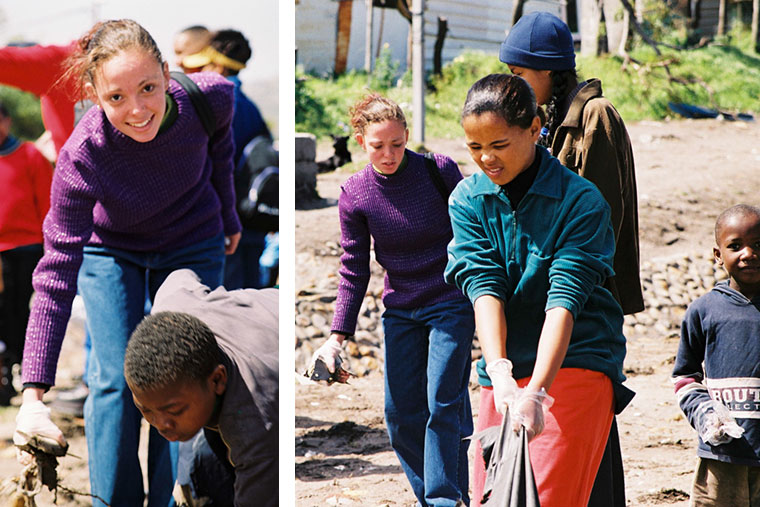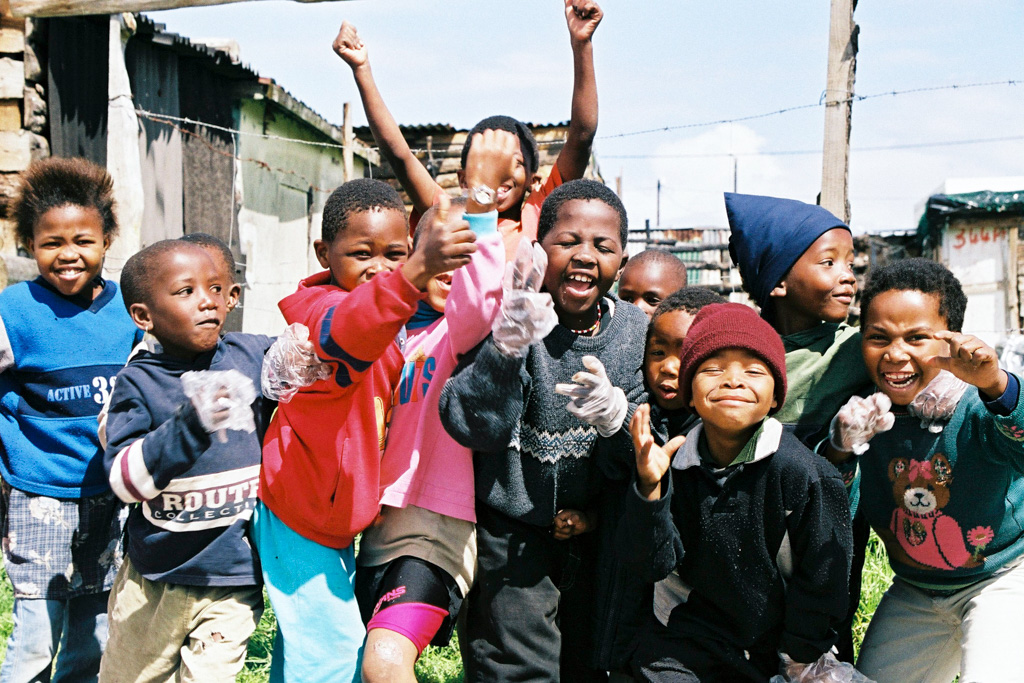
Anand Madhvani, Journal Letter No.1 - December 2002
Dear Friends,
People are coughing amid the acrid smoke, blinking back tears, while the explosions assault my ears. Bright flashes light up the night sky, briefly revealing the faces of shadowy figures. They move this way and that along the packed township streets, as they search for each other through the crowds. This is Johannesburg, so you may be picturing riots in Soweto, complete with petrol bombs and squat, menacing armoured personnelcarriers. In fact, I'm at the Divali celebrations in Lenasia, the Indian 'township' not far from Soweto, and the main danger is from the dodgy Indian and Chinese firecrackers as Hindus welcome in our new year.
South Africa is proving to be full of surprises, constantly making me aware of my prejudices and expectations, and how little I know. Johannesburg is a large city with extensive infrastructure and facilities - hard to equate with other parts of Africa I've seen. Very expensive cars roll past decent suburbs in some parts of Soweto, rather than the ramshackle slums I'd imagined. On my way to work, I pass beggars and hawkers at junctions, a few are white - why do I find that more shocking? In the 'crime capital' of the world, where a neighbour was shot in my back garden a few months ago, how can I feel fairly safe and comfortable?
There are so many difficult issues here. Some are too big to take in, to live with on a day-today basis - the AIDS statistics, or the risk of violent crime. Others are hidden in different ways; poverty here doesn't seem as bad as what you'd see in many Indian cities, yet there is a particular hopelessness, and chronic lack of economic activity in large areas. Many seem to have forgiven their oppression under apartheid in a quite remarkable way. That is an old issue - jobs, crime, corruption, AIDS are what they want to address now. Yet with little material improvements after decades of injustice and repression, that legacy still simmers away under the surface, re-emerging as youth violence and a total breakdown in social fabric. (I'm surprised at how upset I get, reading the QPSW letters from Palestine - the injustice there feels more terrible, now that I've seen the scars here).
The inequalities are possibly the most obvious and shocking thing. Slums sit right next to expensive shopping malls or plush golf courses. In the midst of a food crisis throughout southern Africa, Woolworths is not going to run short of home-made sushi ingredients. It's very easy to live in a completely separate world, if you have the means - racial apartheid has now just given way to the more acceptable financial one, though the difference between the two is not always obvious on the ground.
Yet amongst all of the challenges and surprises, perhaps the most valuable one comes from the range and diversity of people I'm meeting here. Stereotypes just don't help much, whether colour, class, or where people come from. I'm constantly made aware how much I automatically rely on them, especially as an outsider struggling to grasp patterns in the complexity around me.
That too leads to more questioning. Before I came, I was very interested in the traditional African notion of ubuntu, togetherness of all people, which seems to have formed part of the willingness to forgive past actions. Now I find myself thinking a lot about the history of Western culture, and how far that has changed over the past few centuries, especially when seen contrasted against the 'logic' of apartheid. Such racist attitudes had roots in a Europe which has largely moved on - through anti-slavery movements and emancipation acts, genocide, decolonization, mass foreign travel and immigration since the 60's. In some ways, these last ongoing changes are maybe the most profound, allowing people to meet other people from other cultures as individuals, to understand the usefulness yet profound superficiality of stereotypes, and how much people actually have in common.

clearing trash in Khayelisha
During my first month, I took part in a workshop on citizenship and social action with a large group of schoolchildren, organised by the Quaker Peace Centre in Cape Town. Some of the practical activities were at an 'informal settlement', mixing and laying a cow-dung floor by hand in a cultural centre, and doing some street-cleaning. Initially most of the kids were horrified at the work and location, but after they saw others getting stuck in, almost everyone joined in, and really got involved, enjoying working together, the sense of achievement, and getting over their initial misgivings.
Creating a safe space for such new experiences is an underlying theme for the two main organisations I'm working for. Both address chronic problems facing post-apartheid South Africa, but they are also found elsewhere, maybe in different forms.
One is AVP, the Alternatives to Violence Project, which some of you may know from its work in the UK. In AVP workshops, participants experience and explore aspects of trust, communication and co-operation, and handling conflicts non-violently, building a sense of community many never experience.
The second organisation is called TALK - Transfer of African Language Knowledge. It provides encounters with African languages and cultures of South Africa, ranging from individual and group language courses, cultural immersions, and tours of Soweto.
Both areas of work come up against similar protective barriers and prejudices - especially here, where few whites have still never been to a black township, and fear can be a way of life. Some are about external concerns, while others are about a lack of confidence, selfworth or trust in oneself and one's abilities. Such fears and uncertainties are gradually put aside through gentle, positive, fun and interesting encounters.
The results are almost always surprising and deeply rewarding, whether we're working with hospital staff, school pupils, young offenders awaiting trial or at a commercial company. That's also been a surprise - how much hope and positive energy there is amongst participants, when they have done something they never felt they would.
Yes, maybe that's the biggest surprise - amongst and despite all the inequalities and terrible history and profound problems, I'm finding this to be a very hopeful place.
Come and see for yourself. You might be surprised what you find, within and without.
with best wishes,
Anand

 ⥢
⥢
 ⥤
⥤